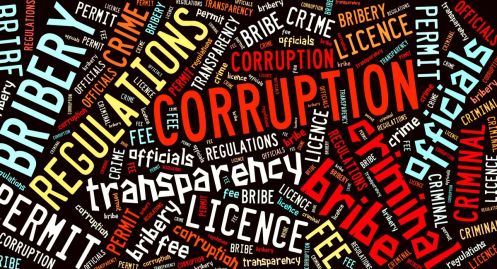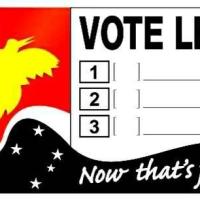Turning the Tables on ‘Overnight Millionaires’

Corruption in PNG is a well recognized issue. The country was ranked 136 out of 176 in Transparency International’s 2016 Corruption Perception Index – an index measuring how corrupt public sectors are seen to be.
Reports about corruption are regular pieces in PNG’s media landscape; and commissions of inquiry into maladministration are common. Although specific data on private and public corruption is limited, it would be fair to point to public corruption as being the dominant faction.
In publishing their results Transparency International made the point of highlighting the connection between corruption and inequality – with Chair Jose Ugaz saying:
“In too many countries, people are deprived of their most basic needs and go to bed hungry every night because of corruption, while the powerful and corrupt enjoy lavish lifestyles with impunity”.
These lavish lifestyles, often perceived to have their genesis from an appointed or elected position within public and political spheres, have spawned the creation of a term describing individuals who abuse their positions of trust to such a degree they accumulate significant wealth – i.e: ‘overnight millionaires’.
In 2015 PM Peter O’Neill himself in responding to the opposition during question time admitted that there were former ministers he was aware of who would not be able to adequately account for their new found wealth.
It’s an issue that former Taskforce Sweep Chairman Sam Koim has long voiced concerns about – in particular – proceeds of crime being illegally invested offshore, especially in Australia.
In combating this systemic abuse, it is essential that institutions that play a role in improving the quality of democracy in PNG are well-resourced and empowered to fulfill their functions. Unfortunately, this is quite often not the case.
In 2010 parliament attempted to pass the ‘Maladina Amendments‘ which would reduce the powers of the Ombudsman Commission to hold leaders to account. The Supreme Court later rejected the amendments. In 2014 Taskforce Sweep was disbanded by the government with the promise of the establishment of an Independent Commission Against Corruption. That has yet to eventuate.
So how do we turn the tables on ‘overnight millionaires’ and proceeds of crime?
One proposition that has yet to be put up for discussion in PNG is the idea of reversing the burden of proof for offenses suspected to be associated with proceeds of crime.
The suggestion revolves around putting the onus back on individuals who are suspected on reasonable grounds to have benefited from proceeds of crime. The burden of proof is reversed and the accused must disprove the imposed presumption.
Individuals and organisations suspected of having accrued assets illegally could be forced to prove that those assets were earned lawfully.
Varieties of these reverse in onus clauses are already in use in England, Canada and New Zealand – where such a clause is used specifically to combat suspected proceeds of crime.
A recent article in the NZ Herald describes how since 2009 when the law change was implemented, police managed to:
Seize 110 homes worth $34.5m, cash and bank deposits worth $27m, four farms or orchards worth $7.6m, 234 cars and 97 motorcycles worth $5.6m, eight commercial businesses worth $4.3m and a dozen lifestyle blocks valued at $3.9m.
The confiscated money is re-invested back into law enforcement.
This particular strategy in combating proceeds of crime is especially attractive in a state like PNG where anti-corruption functions of independent institutions have consistently been eroded.
The Royal PNG Constabulary is by no means perfect, but a drastic change of this magnitude will help law-enforcement turn the tide against proceeds of crime.













